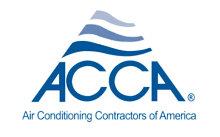Water Heater Installation for Tank Water Heaters and Tankless Water Heaters
If your old water heater isn’t working correctly, doesn’t heat water at the same energy efficiency it used to, or is even nearing the average lifespan for tank-style heaters or tankless heaters, water heater replacement may be the right solution for your household. If water heats slowly or you have leaks gas water heaters or electric water heaters, water heater repair may not be able to solve these issues. In this case, your best bet is to replace a water heater to ensure a steady supply of hot water whenever you need it.
If you’re looking to replace your electric water heater, propane water heater, or natural gas water heater, it can be difficult to know whether you should opt for a conventional water heater (also called tank water heaters) or a tankless water heater replacement. Each type of water heater serves the same purpose, but they heat water differently and have different pros and cons. The licensed plumber team at Williams Comfort Air compares the two types of water heaters so that you can decide which one works best for your needs before purchasing a new water heater to replace the existing water heater in your Central Indiana home.
We’ll also tell you what things to consider when selecting the right type of water heater to install in your home, and how to determine water heater replacement costs for each kind of new hot water heater. For tank style and tankless water heater costs, average costs typically include labor costs, water heater costs, and additional cost factors relative to your unique water heater installation needs, such as installing a new gas line or electrical wiring when converting to a water heater using a different fuel type than the prior unit.
The Williams Comfort Air team proudly performs water heater replacement for homeowners throughout the Central Indiana area. No matter what kind of water heater is currently installed, whether they be conventional water heaters or tankless heaters, we can replace it with energy-efficient models of all types.
Tank Style Water Heater Replacement Services
To ensure that your tank water heater performs well for years to come, it’s important to practice good maintenance care and have the unit serviced regularly. Like any machine, water heaters will eventually wear out, so in addition to regular upkeep, you may need to upgrade if your old water heater is getting up there in years or isn’t as energy efficient as it used to be when it comes to generating hot water.
Installing a water heater is a job best done by your trusted plumber, whether you pick a new electric water heater, natural gas water heater, or propane water heater of any tank size. The licensed Central Indiana plumbers of Williams Comfort Air can be found replacing a water heater in a home near you most days of the week! If you’re interested in learning more about our tank-style water heater replacement services in Central Indiana, contact us today.
Friendly Service. Certified Technicians. Happy Clients.
Our Guarantees
No Guesswork
When we say "This is how much it is" that's how much it is. Period.
"It Will Work"
No excuses or stories, just service when you need it!
100% Money-Back Satisfaction
We'll make it right or remove the system and return 100% of your money.
Client Respect
If we dirty it, we'll clean it. If we damage it, we'll fix it. Plain and simple.
Safe and Secure
The right company and the right people in your home, ensuring your job is done right and your peace of mind is protected.
Water Heater Emergency? Calls Are Answered 24/7/365
Average Lifespan of Water Heaters
If you have a tank-style water heater, it may not be working well or be running at the energy-efficient performance level it once did if it is several years old. You can expect an average lifespan of 8 to 12 years from these water heaters, as that’s about how long these appliances tend to last, no matter the fuel source. A tank-style heater is only good for around eight to ten years when used regularly and maintained properly – if you don’t properly care for your electric or gas water heater tank unit over the years, it may fail sooner than expected.
Homeowners who have already moved forward with installing a water heater that is a tankless model in the past will see a longer service life from these water heaters. A tankless model generally lasts an average of 20 to 30 years when they are well-maintained. Once again, poor maintenance care and other factors throughout the life of the unit can impact this timeframe.
Is It Time to Replace My Old Hot Water Heater?
Age is an important factor to water heater replacement decisions, but it’s not the only reason you’d want to move forward with replacing a water heater. There are signs it’s time to replace your old hot water heater based on its performance:
- If you haven’t seen your hot water heater perform well or as it did when you first installed it.
- If there’s an abnormal amount of sediment built up inside of your tank (it should be clear).
- If your annual energy bill has gotten higher but fuel prices and usage havent changed.
- If you’re simply ready to enjoy using new, modern water heating technology and energy-efficient models.
What Are the Main Differences Between Conventional and Tankless Water Heaters?
The main difference between conventional water heaters and tankless models is how they go about heating water.
- Tankless units heat water as it flows on demand as it is needed in the home, so there are no storage tanks to limit how much hot water you can have flowing at one time. Water heating is performed by a gas burner and heating element or an electric element. They do not run out of hot water, but model flow rate varies. You must choose a tankless unit with the proper flow rate to provide ample hot water for all needs that could occur simultaneously throughout the house, or your hot water lines may end up feeling like cold water lines!
- Meanwhile, conventional units work by heating up large tanks of hot water ahead of time using a gas burner and heating element or electric element. A set volume of hot water is held in reserve to supply all of your household’s hot water needs. The size of the tank is important here, as once the tank runs out of hot water, you must wait until it refills to feel hot water from the water lines again.
How Do I Choose Between Unit Types When Replacing a Water Heater?
The decision is ultimately yours, regarding whether or not you wish to go with a natural gas or electric water heater, and the choice between tank and tankless models. Here are a few points that can help you decide between the options:
- If space and size are at a premium, tank water heaters aren’t always the best to install. Tankless models are much smaller in size as they don’t have storage tanks. These compact water heaters can even be installed mounted on a wall to free up floor space!
- If you’re looking to completely replace your water heater, you’ll have to determine the fuel type you want to use even before choosing between tankless and conventional water heaters. Homeowners are often swayed by rising utility fuel prices and the desire to lower utility bills by using a different fuel source.
- When switching from an electric model to gas units, you may need to have gas lines and a gas control valve installed if your home isn’t already gas piping plumbed with gas lines. Gas models will also require a vent pipe, as venting pipes pull in fresh combustion air and expel exhaust air outside of the home. You can choose new gas units with a direct vent or power vent. A direct venting system vents exhaust gases through a vertical pipe. A power venting system uses a blower and horizontal venting pipes to expel exhaust.
- Typically, tankless models will be more energy efficient than tank-style units. Electric water heaters that are tankless are more energy efficient than their gas counterparts. Amongst tank models, electric units are the better energy efficiency choice but a gas model with a pilot light typically heats water faster even when the two units use the same temperature setting.
- Tankless water heating units tend to cost more upfront versus tank models. Installation costs can be higher when upgrading to a tankless unit from a tank model due to the extra work and labor costs involved in performing the conversion.
What Water Heater Costs Are Included in Water Heater Replacement?
If you are considering water heater replacement, you might be wondering what fees are included in water heater replacement costs. How much will it cost to replace a conventional water heater with a tankless water heater and vice versa? Should I wait until my current water heater breaks to replace it, or is it a better money move to have it replaced right away before anything happens? Do I need a new gas line for my new unit, too?
Those are all great questions! Average costs for water heater replacement depend on variables specific to your home and which water heater type you select for replacement.
- New water heater costs to replace a water heater tank model can come in under $1000 or go into the several thousands of dollars depending on the model you pick and any additional cost factors associated with performing the installation.
- Tankless water heating units have higher water heater replacement costs compared to tank models, as the equipment comes at a higher price.
- Natural gas water heaters are generally more expensive to install than water heater installation for electric models of both types, due to higher labor costs associated with working on gas lines and installing a shutoff valve safety device.
Award Winning & Industry-Leading
Who Is MAX?
Max is an important part of our team. He is more than just a cartoon character. Max represents our commitment to quality work, craftsmanship, pride, and our passion to serve our clients and community. We celebrate this mentality through Max because these are the values that drive us to be the area’s most complete and comprehensive home service company. So, now when you see Max, you’ll know the story behind the man with the mustache!
























